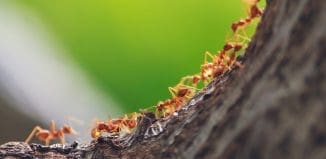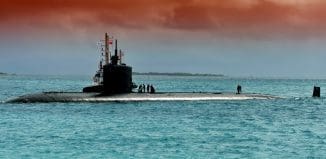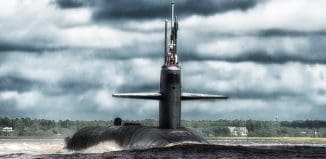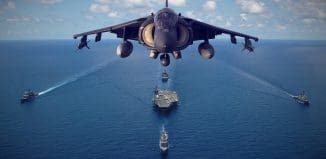Autonomous Antifouling Solution to Clean Navy’s Submarines

This post is also available in:  עברית (Hebrew)
עברית (Hebrew)
Autonomous systems can contribute to the efficient fight against environmental damage, for the benefit of military vehicles and installations maintenance. A new contract will improve the U.S. Navy’s ability to prevent marine organisms from damaging the exterior of maritime vessels while they are docked. Boston Engineering’s contract focuses on deploying a system to prevent and to remove marine biological fouling on the hulls of Ohio-class submarines during in-port periods.
The company received the Phase I award from Naval Sea Systems Command (NAVSEA) as part of the U.S. Navy’s Small Business Innovation Research (SBIR)/Small Business Technology Transfer (STTR) program.
According to prnewswire.com, current antifouling operations are lengthy and require significant manpower. Additionally, the Alliance for Costal Technologies estimates that maintenance costs due to biofouling can consume as much as 50% of operational budgets.
Boston Engineering addresses these challenges with a unique mobile solution with a tuned, low-contact energy module to target biological forms responsible for fouling. The result is an efficient, effective antifouling solution that limits the requirement for divers and eliminates high-energy scrubbing.
“We are applying our expertise in maritime and harsh environment systems to address the U.S. Navy’s requirement for improved operational availability and for lower life-cycle maintenance costs,” said Michael Rufo, director of Boston Engineering’s Advanced Systems Group. “Boston Engineering’s modular, versatile solution can be applied to antifouling requirements across both government and commercial maritime environments,” said Mark Smithers, co-founder and chief technology officer at Boston Engineering.
The BIOSwimmer is another interesting product of the comapny. It can inspect the interior voids of ships, and hard to reach external areas such as steerage, propulsion, and sea chests. It can also inspect and protect harbors and piers, perform area searches, and carry out other security missions. The Department of Homeland Security’s (DHS) Science and Technology Directorate (S&T) has been funding the BIOSwimmer.
The company expertises in product design and engineering consulting regarding consumer products, defense & security, medical devices, robotics, and industrial & commercial products. Its Advanced Systems Group (ASG) develops robotics, unmanned systems, and special tactical equipment for federal defense and civilian agencies, and corporations.




























